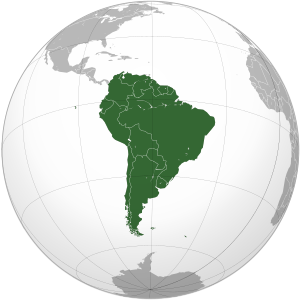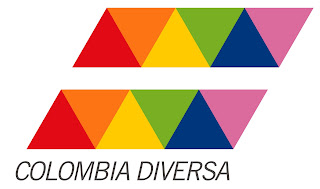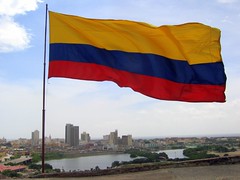By Paul Canning
LGBT Asylum News wishes a happy, safe and prosperous 2011 to all our readers.
In 2010 we published about a thousand posts, including 29 'action alerts'. Our daily average number of posts has gone up from about two to about four and they were viewed on the website about 110,000 times. You came from 191 countries, read, on average, one and a half pages and spent about two and a half minutes on the website. A quarter of you have visited and come back.
Our most popular content in 2010 was:
 Kiana in a scene from the film 'Cul de Sac'
Kiana in a scene from the film 'Cul de Sac'
The story of Iranian lesbian asylum seeker Kiana Firouz, which we broke in April, attracted attention like no LGBT asylum case since that of another Iranian,
Mehdi Kazemi. A
petition for her drew an astonishing 45,000 signatures. In June, very quickly after a new asylum case was put to the UK Home Office,
she won asylum.
Albania: reality TV programme prompts 'explosive debate'
In March, reader John Hodgson gave us the story of Klodian Çela, an Albanian Big Brother contestant whose coming out on the show had prompted 'riots' in one town (there were claims the 'riots' were orchestrated for publicity). The story we broke was later raised
by none other than Hillary Clinton as an example of homophobia in Albania during a speech to mark LGBT History Month in June!
Did X Factor 'out' a gay asylum seeker, putting him in danger?
In July we followed up on a story broken by Lesbian and Gay Foundation in Manchester of Zac, a teenage asylum seeker from the United Arab Emirates. Zac's story had appeared without his consent in the popular British tabloid newspaper The Sun - potentially exposing him to danger if he was returned. At year's end, Zac's claim for asylum has still not be settled
Iranian LGBT: Persecuted, harassed, raped, tortured, threatened with death, forced into operations
Our March post which collated testimony from Iranian transgender people, lesbians and gay men has proved popular throughout the year. Last month we published
an in-depth analysis of the first report by a major NGO on the plight of Iranian LGBT.
Austria deports African gay footballer
In May we reported on Cletus B, a gay Nigerian deported by Austria. His case attracted mass support including a big demonstration in Vienna, but the authorities ignored the protests. In June a follow up report,
Nigerian gay footballer deported by Austria has gone underground; Austrian police charge his counsellor with 'promoting an illegal stay', also proved popular. This story happened because of another reader, Heinz Leitner in Vienna.
In the US, two new strategies for same-sex binational couples
In November our republishing of a post by the American activist group Out4Immigration drew a lot of links and referrals from email. It looked at new ideas for changing the situation of same-sex couples facing the bald choice of having to leave America to stay together or be split apart.
In Colombia, at least ten LGBT 'cleansed' in one week
In September we reported via Argentina's AG Magazine that a wave of killings of gays had hit Northern Colombia. Although this report drew links from a few American LGBT news sources, shamefully these killings were not more widely reported.
Big victory for USA in fresh United Nations 'gay killings' vote
Last month we 'live blogged' the sensational outcome of an American move to reverse a UN vote on excluding sexual orientation in a resolution on extrajudicial killings. We were the first to post the result and the only news outlet to analyze the vote in depth, showing the massive and possibly game-changing vote by African, Caribbean and Pacific Island countries.
Damning report says practically all UK LGBT asylum claims are being refused; Border Agency "cruel and discriminatory"
In March we looked at a new report by UK Lesbian and Gay Immigration Group (UKLGIG) which examined 50 LGBT asylum cases and found that nearly all had been turned down by British authorities. It also documented the then Home Office policy of 'go home and be discrete'. This report later informed Stonewall's 'No Going Back' report,
released in May. In June came
the historic Supreme Court decision which put an end to the 'go home and be discrete' policy.
Here's a
Wordle showing the commonest words on LGBT Asylum News:
Our Twitter account,
opened in September 2009, was almost at 2,000 followers at year's end and is now on 161 other 'Twitterers' lists. And we have 277 'likes' for
our Facebook page - Facebook has proved an increasing source for referrals to the website in 2010.
We added 17 uploads to
our YouTube channel, which we started in March, and 166 Favorites. Our video and audio has been viewed over 4000 times with
In Phnom Penh, the amazing work of a 70-year-old transgender sex worker by far the most popular upload.
On the document sharing service Scribd,
we've put 47 documents and these have been read over 13,000 times.
 |
| Content views by email last week |
|
375 of you subscribe to the website by email and views of posts by this route now average over 1,000 per day - interestingly the content viewed this way is always very different to that viewed on the web. Our content also circulates widely via republishing on other websites as well as via web services like
FriendFeed.
Our content has been widely picked up and repurposed by other news outlets - most notably by
pinknews.co.uk,
LezGetReal and the
San Diego Gay and Lesbian News and later in the year by
Pink Paper. We've had consistent links from the major US LGBT news outlet
Towleroad, which has drawn in a huge new audience for the website.
We'd like to thank all those who have linked to, republished, 'liked' and retweeted our stories in 2010!
We'd also like to thank all those who have contributed to the website whether through their own posts or through suggesting stories or through helping with translations. We are always looking for help with translations so please let us know if you're able to help here.
Early in 2011 there will be major, exciting changes to the website. These will embed and make sustainable
our goal of 'documenting the situations in countries from which LGBT people are fleeing to the UK hoping for a safe haven and the problems they can face from the UK asylum system' - and make this truly international. It will also provide a new way for our readers to talk to each other and for LGBT asylum advocates, lawyers, refugees and refugee workers to work together.
Keep watching this space! (And please give us your feedback
by email or in the comments below!)
















![Reblog this post [with Zemanta]](http://img.zemanta.com/reblog_e.png?x-id=72e01437-cbd8-4dd3-bfd1-08852282f6ea)

![Reblog this post [with Zemanta]](http://img.zemanta.com/reblog_e.png?x-id=549c447b-0d07-4e0e-a336-4e181299739b)

![Reblog this post [with Zemanta]](http://img.zemanta.com/reblog_e.png?x-id=e35eb903-6f0f-4509-ba9d-2784755d15b8)





 Join our page
Join our page

